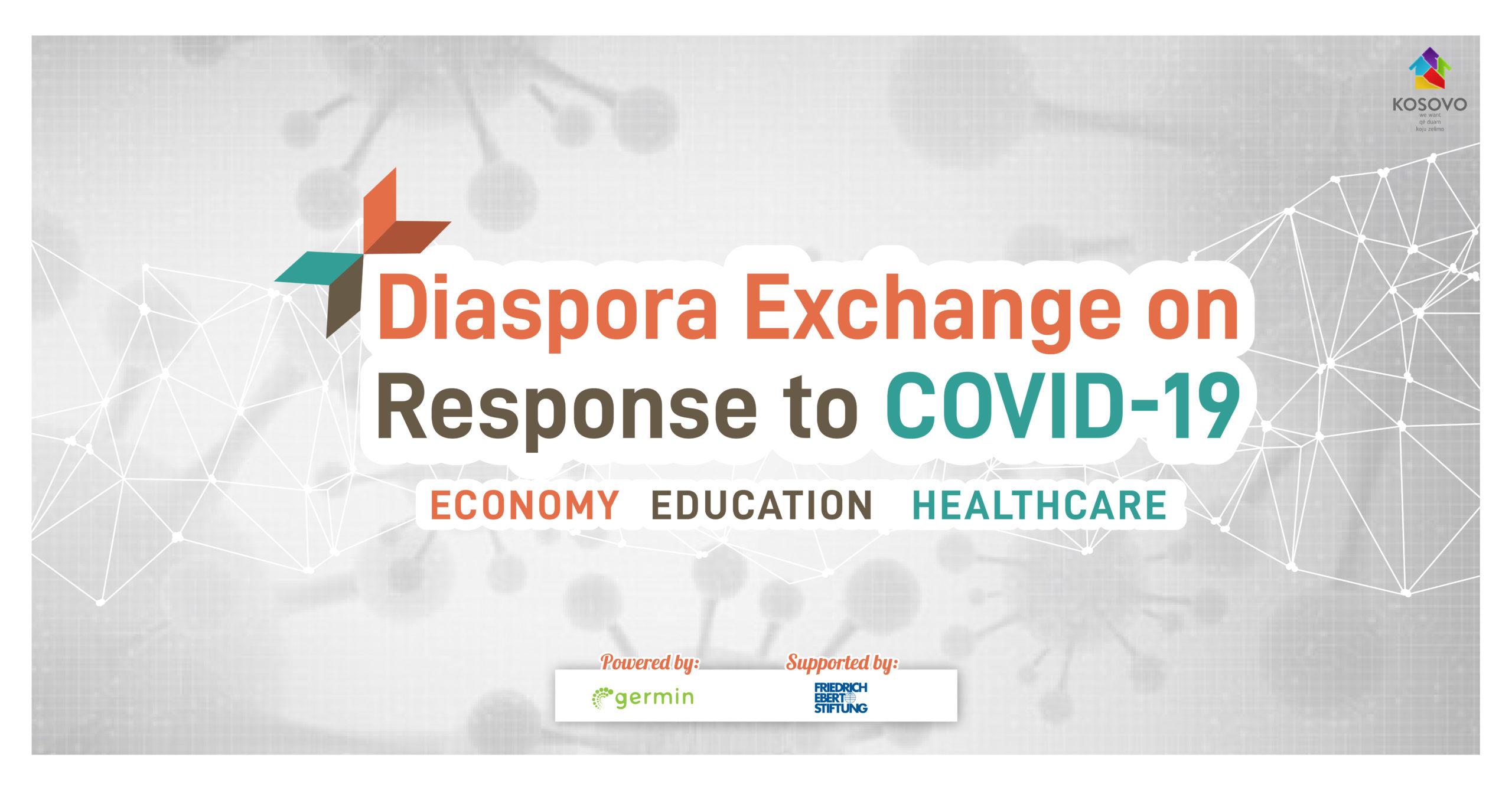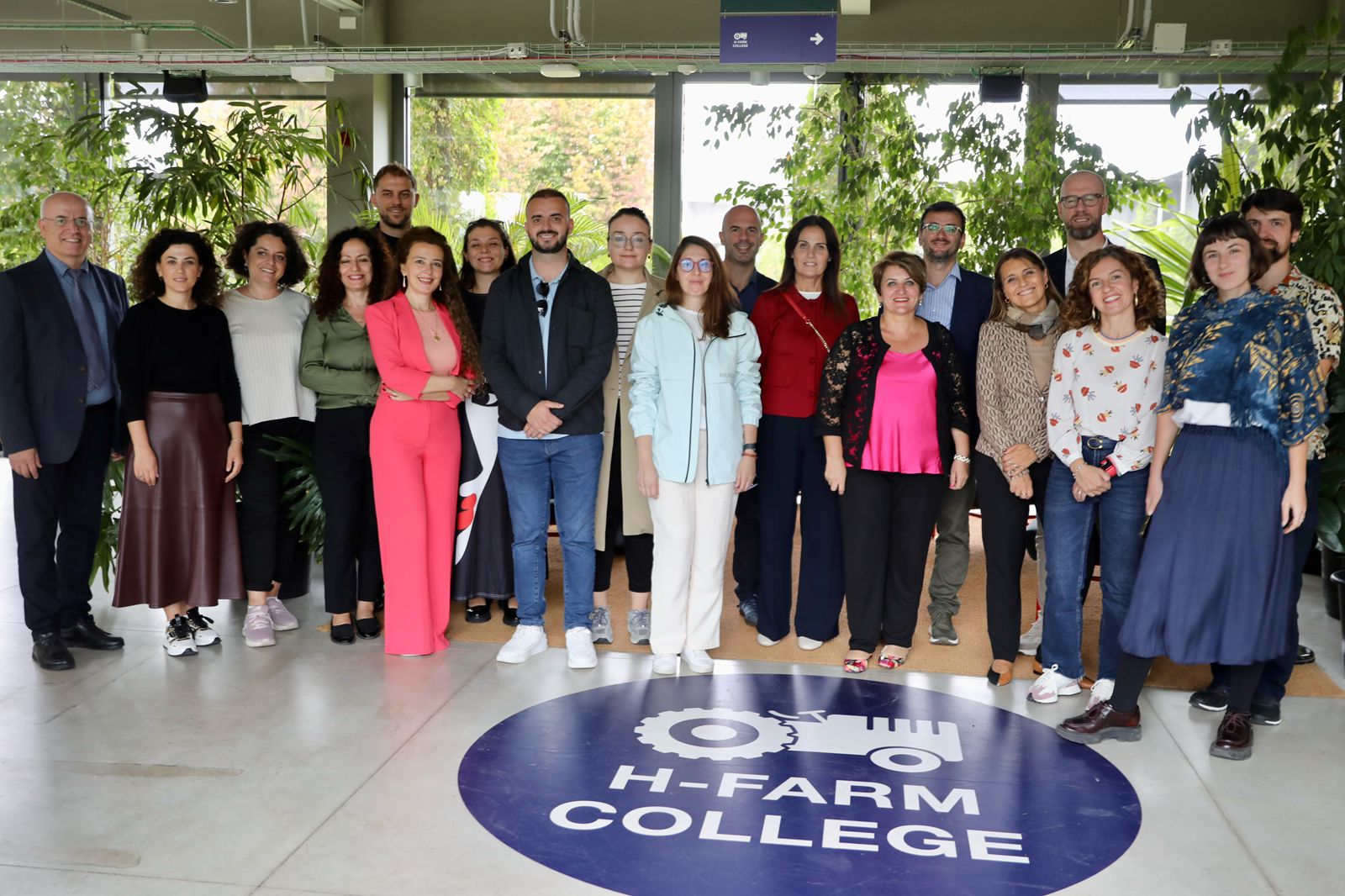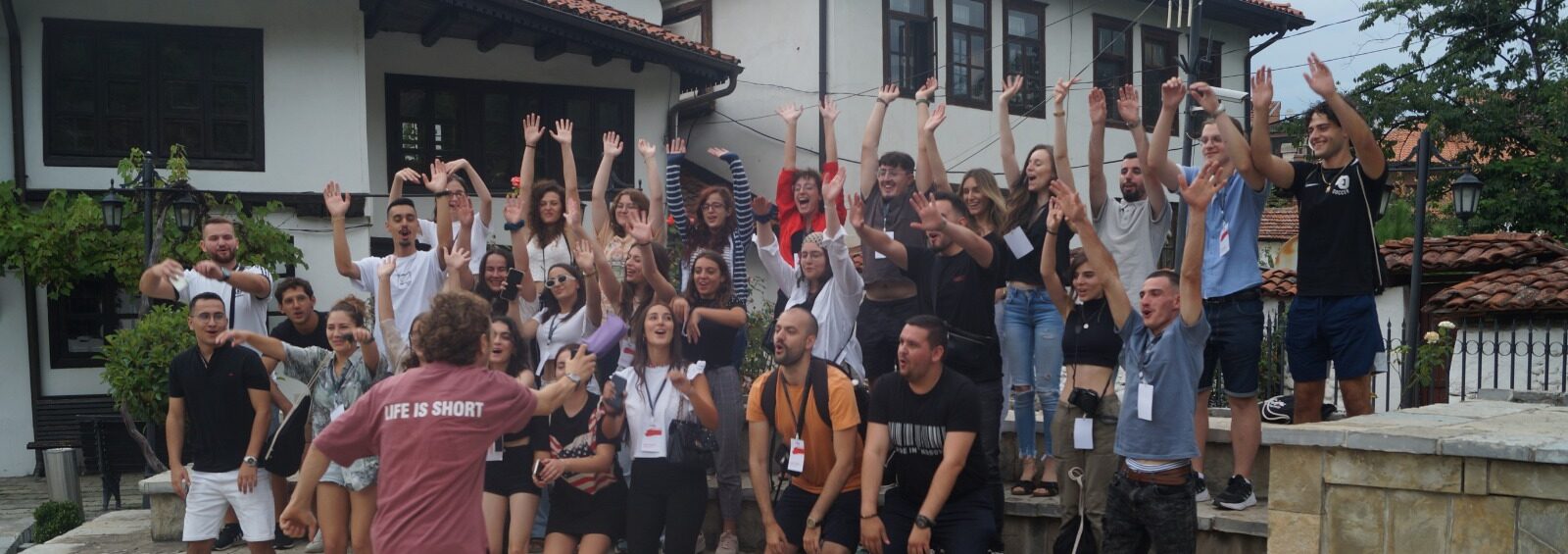Me 19 dhe 23 tetor 2020, janë mbajtur takimet e para virtuale me vendimmarrës vendorë dhe përfaqësues nga Diaspora në kuadër të projektit “Shkëmbimet me Diasporën mbi Reagimin ndaj COVID-19”
Me 19 tetor është organizuar takimi i parë në kuadër të projektit “Shkëmbimet me Diasporën mbi Reagimin ndaj COVID-19”. Në këtë takim morën pjesë vendimmarrës të nivelit qendror dhe lokal nga fusha e ekonomisë dhe përfaqësues të komunitetit të biznesit.

Shqetësimet kryesore që u ngritën në kuadër të këtij takimi ishin ulja e të hyrave në vend për shkak të çrregullimeve tregtare por edhe uljes së të ardhurave nga mungesa e “turizmit të diasporës” si pasojë kufizimeve nga COVID-19.
Z. Visar Shehu, nënkryetar në Komunën e Prizrenit, theksoi që pandemia ka ndikuar për të keq, sidomos ne sektorin e tregtisë, kulturës dhe turizmit, gastronomisë me zingjirin e eventeve, si p.sh. dasmat, ahengjet, etj. Një ndër sektorët i cili poashtu ka pasur një rënie të dukshme në Komunën e Prizrenit është edhe industria e tekstilit.
Znj. Sytrime Dervisholli, Drejtoreshë e Departamentit të Tregtisë, në Ministrinë e Tregtisë dhe Industrisë theksoi se pandemia ka pasur efektet dhe ndikimet negative në tregtinë e Kosovës në raport me vendet tjera. Gjithsesi, ajo duke iu referuar raportit të Bankës Qendrore të Kosovës ka treguar qe Teknologjia Informative dhe e Komunikimit dhe shërbimet, kanë pasur rritje në eksport gjatë periudhës së pandemisë, përkundër rënies së përgjithshme në sektorët tjerë. Në rrethanat e reja pas Marrëveshjes së Stabilizim Asociimit, është krijuar nevoja që të përditësohet “Dokumenti i Politikës Tregtare”, i cili përmban vendimet strategjike dhe i jep kahje ekonomisë se Kosovës se në çfare drejtimi duhet të drejtohet. Përditësimi i këtij dokumenti ka filluar ne Korrik 2020 kurse përpilimi i tij dhe do të publikohet në fillim të vitit 2021 dhe plani është që fokusi të zhvendoset në eksportin e shërbimeve nga sektori i TI-së por edhe shërbimet tjera profesionale.
Z. Bekim Kamberi nga komuniteti i biznesit theksoi se problemet që ndodhën si shkak i pandemisë, e sidomos kur ishin masat parandaluese të lëvizjes, ishte me sfiduese dhe problematike, pasi që jo të gjithë bizneset dhe individët ishin të njoftuar për dokumentacionin që duhej të mbanin me vete. Sipas tij version i dytë i pakos ndihmuese nga qeveria përmes subvencionimit është më i favorshëm për bizneset pasi që krijon një siguri më të madhe për to.
Në takim poshtu u shpreh si shqetësim i madhulja e kapaciteteve të bizneseve për të kryer obligimet tatimore në kohe dhe nevoja për qasje më të lehtë në financa për të siguruar likuiditetin por edhe rritur kapacitetet investuese.
Z. Besnik Miftaraj, Konsull i Kosovës në Stuttgart në Gjermani, solli në vëmendje nje rritje prej 5.5% shume te madhe te eksportit nga Kosova për në Gjermani, përkundër rënies rekorde të ekonomisë Gjermane me 9.7%. Importi nga Kosova drejt këtij shteti, përbëhet kryesisht nga produktet ushqimore dhe shërbime të TI-së që tregon një motiv shumë të mirë për investim nga Diaspora, nëse ekzistojne programe adekuate dhe të detajuara për komunitetin e biznesit në diasporë.

Me 23 tetor është organizuar takimi i dytë në kuadër të projektit Shkëmbimet me Diasporën mbi Reagimin ndaj COVID-19”. kësaj radhe me përfaqësues nga diaspora nga fusha e ekonomisë dhe komuniteti i biznesit nga vende të ndryshme të Bashkimit Evropian por edhe ShBA dhe Kanadaja. Në këtë takim u sollën në vëmendje praktikat e shteteve rezidente të pjesemarrësve si Gjermania, Greqia, Italia, Franca, ShBA-të dhe Kanadaja sa i përket masave që janë ndërmarrë në aspektin e tatimeve dhe lehtësirave për bizneset, qasjes në financa dhe kreditimit, si dhe politikave tregtare si reagim ndaj krizës së shkaktuar nga COVID-19.
Z. Nestor Dede, Kryetar i Rrjetit të Bizneseve të Diasporës Shqiptare nga Greqia solli në pah praktikat e këtij shteti, ku shlyerja e obligimeve tatimore për bizneset është shtyrë të paktën deri në Mars 2021. Shteti Grek ka marre kredit shtetëror prej 10 miliardë eurosh, i cili shlyhet pas 10 viteve, me nje kosto 1% dhe do të përdoret si reagim ndaj krizës së shkaktuar nga COVID-19. Nërkohë, Z. Francisko Begolli nga Kanadaja tha se vlerësimet e para tregojnë se rreth 40% e Ndërmarrjeve të vogla dhe të mesme janë në rrugë të falimentimit.
Z. Vat Marashi, Kryetar i Rrjetit të Bizneseve të Diasporës Shqiptare nga Italia potencoi se bizneset e prekura janë duke pranuar subencione nga shteti, dhe se çdo obligim tatimor por edhe kredi është pezulluar për të paktën një vit. Z. Eshref Januzaj nga Gjermania duke sjellur praktikat e këtij shteti i cili ka ndarë menjëherë rreth 40 miliardë për ekonominë nga rezervat shtetërore, tha se praktikat dallojnë në detaje varësisht republikave dhe karakteristikave të tyre.
Znj. Anila Hyka, anëtare e Këshillit Koordinues të Diasporës, edhe eksperte e telekomunikimit nga Franca, theksoi se ky shtet në strategjinë e re të prezantuar do të ulë taksat me 30% për të gjitha fushat e industrisë dhe prodhimit, për të ndihmuar kryesisht kompanitë e vogla dhe të mesme. Z. Gasmen Toska, poashtu nga Franca, si përfaqësues i Aleancës së Biznesit Shqiptaro-Francez prezantoi perspektivën e tij mbi reagimin ndaj krizës, duke thënë që sikurse shumica e shteteve perendimore, edhe shtetet tona amë, përkatësisht Kosova duhet të mobilizojnë resurset financiare, duke planifikuar një shumë të konsiderueshme (rreth 20% e GDP-së) e cila do të dedikohet për ekonominë si reagim ndaj COVI-19.
Z. Lirim Krasniqi nga GERMIN si moderator i këtyre takimeve, duke prezantuar shqetësimet e vendimmarrësve vendorë dhe nevojat dhe mundësitë për të dalë nga kriza e shkaktuar nga COVID-19, përmblodhi më pas rekomandimet e pjesëmarrësve në takim. Ai gjithashtu prezantoi në pika të shkurtra pakon për rimëkembje ekonomike të qeverisë së Kosovës e cila ndër tjerash, synon që të mobilizojë resurse financiare nga diaspora. Shumica e pjesëmarrsve u pajtuan poashtu që shteti i Kosovës duhet të ndërmarrë masa që të mobilizojë resurset financiare dhe humane brenda vendit dhe nga diaspora. Por për të arritur këtë gjë, duhet që, ndër tjerash, të merren parasysh disa prej masave të prezantuara:
-
Përmirësimi i stabilitetit ligjor, përfshirë rritjen e efikasitetit dhe shpejtësisë së vendimmarrjes
-
Transparencë e plotë e masave dhe programit për rimëkëmbje, shperndarje e informacionit të detajuar tek diaspora mbi procesin dhe planet për rimëkëmbje
-
Dizejnim i një politike të qëndrueshme tatimore dhe fiskale për një periudhe afatmesme dhe afatgjate
-
Planifikimi dhe krijimi i një Fondi Investiv dhe/apo bondeve për diasporën me kritere të qarta dhe informacion të detajuar; Këto mekanizma sygjerohet të menaxhohen me pjesëmarrjen e diasporës dhe institucioneve të pavarura në mënyrë që varësia nga qeveria të mos jetë problematike
-
Angazhim i ‘trurit’ nga diaspora me programe të favorshme të migrimit qarkor për sektorët me potencial
-
Rritja e aktivitetit të diplomacisë ekonomike për të lidhur tregjet dhe shfrytëzuar boshllëqet e krijuara në zingjirë të ndryshëm furnizimi në disa shtete evropiane, etj.
z. Rene Schlee, Drejtor i Friedrich Ebert Stiftung në Kosovë, shprehu kënaqësinë në takimin e parë që fondacioni që ai drejton ka partner një organizatë si Germin me të cilën bashkëpunimi për platfomën Kosova që duam është në të mirë të komunitetit në vend. Ai poashtu potencoi që është shumë e rëndësishme që të vlerësohen se cilat janë nevojat dhe sfidat qe po shfaqen nga paraqitja e pandemisë në fushen e ekonomisë.
Ky projekt organizohet nga GERMIN me mbështetjen e Friedrich Ebert Stiftung, Prishtina Office, përmes platformës “Kosova që duam“, ka për qëllim identifikimin e problemeve dhe nevojave akute të sektorëve kyç të institucioneve kosovare të shkaktuara nga COVID-19, për t’i prezantuar pastaj tek profesionistët dhe palët e interesit nga diaspora më qëllim të shqyrtimit të mundësive për mbështetje dhe asistencë direkte.

Shënim: Të gjitha diskutimet nga takimet virtuale në kuadër të këtij projekti do të bëhen pjesë e një raporti i cili do të dalë me rekomandime konkrete për institucionet vendimmarrëse në Kosovë nga fusha e ekonomisë, shëndetësise dhe edukimit për t’ju përgjigjur krizës së shkaktuar nga COVID-19 me pjesëmarrjen e diasporës.



